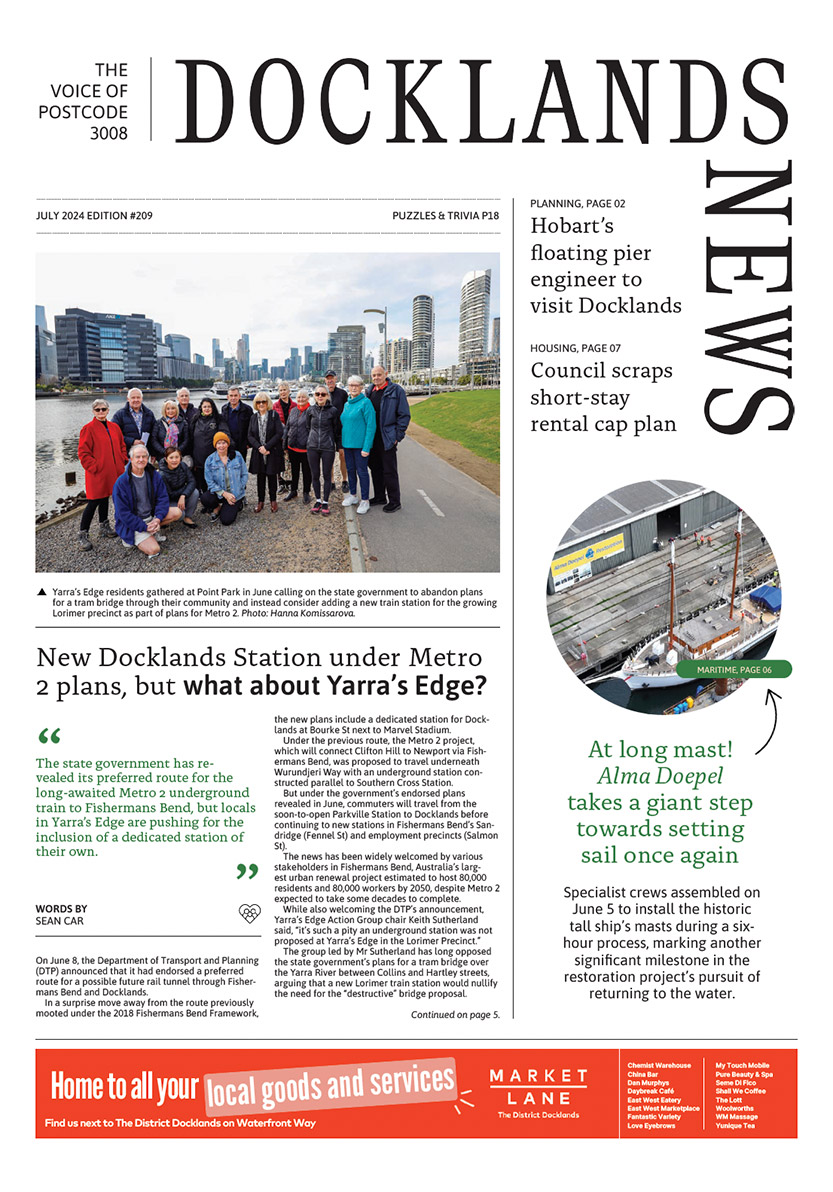Docklands night-time economy
By the Docklands Representative Group
You can’t operate a night-time economy without night-time staff – and that includes council officials and other authorities.
While some Docklanders have only recently been impacted by new night-time venues, many others have been raising issues about noise and late-night antisocial behaviour for much longer.
And, unfortunately, this is going to be a tricky issue to tackle as it involves multiple parties and a range of longstanding issues.
Let’s start with Melbourne’s support of a “vibrant night-time economy”. First thing to note is the emphasis upon “economy” as opposed to, say, a night-time society or community. And allied to this, the second thing to note is who is involved in shaping these directions. As stated on the City of Melbourne’s website:
“The City of Melbourne’s Night Time Economy Advisory Committee brings together leaders from the hospitality, arts and entertainment industries, government representatives and members of academia.”
No mention of residents, nor any other community representatives who might raise issues about local liveability and wellbeing.
Atop of this is the current governance model for Docklands, namely the Docklands Act 1991. This Act effectively excludes Docklands from processes that many other Victorians take for granted. This issue was raised at a recent Future Melbourne Committee Meeting by Docklands Representative Group (DRG) chairperson, Ben Ball, wherein he questioned the relevance of an Act created at a time when there were no residents in Docklands.
While Cr Rohan Leppert has identified a new governance model as a priority issue for Docklands’ future wellbeing, current residents are left facing the reality of sleepless nights and a growth in antisocial behaviour.
What can be done now?
Already a proliferation of petitions, new FB groups and surveys have appeared, all trying to show the impact upon residents. Their message is to lodge complaints with the various authorities, principally the City of Melbourne, EPA and Victoria Police.
In addition to this, the DRG is directly advocating that responsible staff – council and state government – need to be more on-hand and hands-on in the night-time economy.
That is, in addition to a complaints mechanism, the DRG believes that a more embedded approach is needed, one where relevant staff become part of the night time economy and are available to undertake their duties when events are actually occurring.
For instance, staff need to be routinely on-hand to meet party boats to “encourage” the quiet dispersal of patrons. As party boat docking and dispersal of patrons is now a regular event, it needs to be treated as such. Similarly, staff need to proactively – and as part of their usual duties – be on-hand to monitor venues when they are operating.
In short, a 9am to 5pm Monday to Friday model is no longer suitable. The City of Melbourne and relevant authorities need to adapt their work models to cater for the type of night-time economy they say they wish to promote. •

New Docklands Station under Metro 2 plans, but what about Yarra’s Edge?







 Download the Latest Edition
Download the Latest Edition